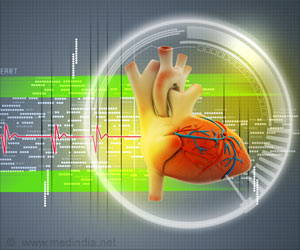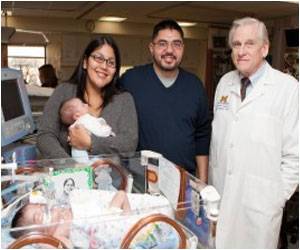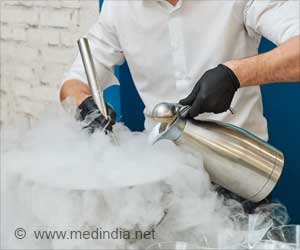- ECMO (Extracorporeal Membrane Oxygenation) is a highly specialized and invasive treatment that can provide life support for patients with severe respiratory and/or cardiac failure
- ECMO is used in cases where other forms of treatment have failed and can be a life-saving intervention for patients with conditions such as COVID-19-induced acute respiratory distress syndrome (ARDS)
- ECMO requires a highly specialized team of healthcare professionals, and the decision to use ECMO is made on a case-by-case basis after careful consideration of the patient's medical history and condition
Severe respiratory failure:
If mechanical ventilation or other treatments for severe respiratory failure, such as acute respiratory distress syndrome (ARDS), pneumonia, or pulmonary embolism, are not working, ECMO may be utilized.Cardiogenic shock:
ECMO may be utilised in patients suffering from severe heart failure or cardiogenic shock, a condition in which the heart is unable to pump enough blood to meet the body's needs.Bridge to transplant:
For critically ill patients who are waiting for a lung or heart transplant, ECMO can be used as a bridge to transplant.Post-cardiotomy shock:
ECMO may be utilised in individuals who experience shock following cardiac surgery, especially if they have a pre-existing cardiac or pulmonary illness.Trauma:
ECMO may be utilised for individuals who have suffered serious lung or cardiac injury as a result of trauma.Pulmonary hypertension:
ECMO may be utilized in individuals with severe pulmonary hypertension, a condition in which the blood pressure in the lungs is excessive and can progress to right heart failure.Overdose or poisoning:
In circumstances of drug overdose or poisoning, where the patient's lungs or heart may be damaged, ECMO may be employed.A team of medical professionals, including critical care specialists, pulmonologists, and cardiothoracic surgeons, will evaluate the patient's health and determine whether the possible benefits of ECMO outweigh the dangers. ECMO is a sophisticated and costly operation that requires specialised training and skill. It is normally reserved for critically ill patients who are not responding to other treatments.
ECMO for COVID-19 Treatment
ECMO (extracorporeal membrane oxygenation) has been utilised to treat severe COVID-19 instances, notably in patients with acute respiratory distress syndrome (ARDS) who have not responded to traditional therapy. Patients with severe lung injury and low oxygen levels can benefit from ECMO's respiratory and cardiac support.Although the use of ECMO during COVID-19 has been associated with some hopeful outcomes in select individuals, it is not a treatment that is appropriate for all patients with severe COVID-19. ECMO is a difficult and invasive operation that necessitates specialised equipment and a team of highly experienced medical personnel. As a result, it is usually reserved for extremely ill patients who have failed other treatments.
Understanding the Risks and Limitations of ECMO for COVID-19 Patients
ECMO carries a multitude of dangers and potential problems, including bleeding, infection, and blood vessel damage. Patients who get ECMO during COVID-19 require close monitoring, and the choice to utilise ECMO is usually determined on a case-by-case basis, taking the patient's particular clinical status, overall health, and other criteria into account.ECMO may be used as a bridge to other treatments, such as lung transplantation or recovery, in some situations. It is crucial to highlight that ECMO is not a cure for COVID-19, and individuals who have received ECMO may require additional therapy and support after being weaned off the machine.
Increasing Role of ECMO in Treating Severe Respiratory Failure
ECMO (extracorporeal membrane oxygenation) has become more common in recent years, particularly during the COVID-19 pandemic. ECMO has been utilised to treat severe respiratory failure in COVID-19 patients who have not responded to traditional therapies. There has been a considerable increase in the number of patients with severe respiratory failure during the pandemic, notably those with acute respiratory distress syndrome (ARDS) associated with COVID-19. ECMO has been employed as a last resort therapy option in some of these patients, with reports of excellent outcomes including better survival rates and reduced requirement for mechanical ventilation.ECMO (extracorporeal membrane oxygenation) has been linked to improved outcomes in individuals suffering from severe respiratory and/or heart failure. ECMO is normally reserved for seriously ill patients who have not responded to traditional treatments, and in some situations, it can be a life-saving intervention.
Acute respiratory distress syndrome (ARDS), a severe lung injury caused by a multitude of reasons such as infections, trauma, and other disorders, is one scenario where ECMO has been associated with favourable outcomes. ECMO has been used to treat severe ARDS, and research has shown that it can increase survival rates and minimize the risk of complications.
ECMO Provides Temporary Cardiac Support and Can Improve Survival Rates in Severe Cardiac Failure Patients
ECMO has also been utilized in patients suffering from severe cardiac failures, such as cardiogenic shock or cardiac arrest. In certain circumstances, ECMO can offer temporary cardiac and circulation system assistance, allowing the heart to rest and repair. ECMO has been found in studies to improve survival rates and reduce the risk of complications in these individuals.Source-Medindia
















